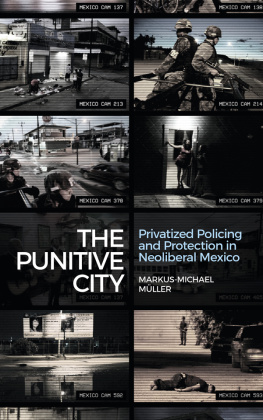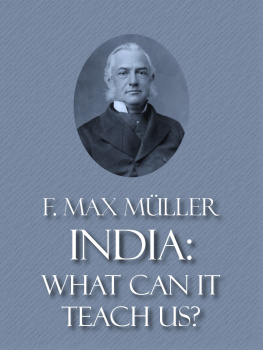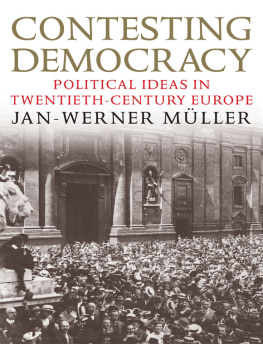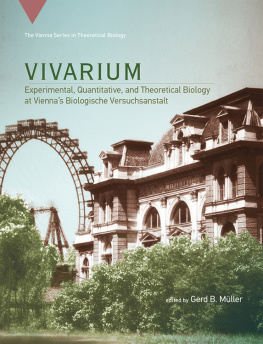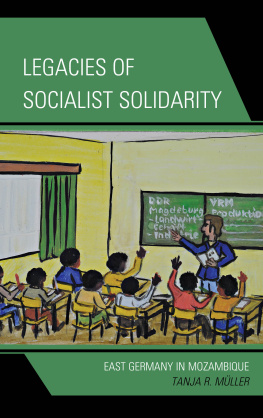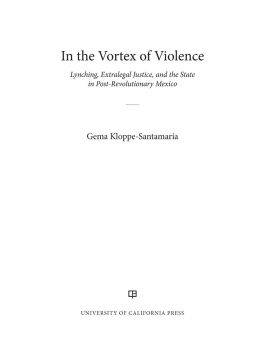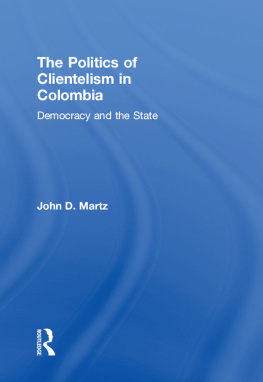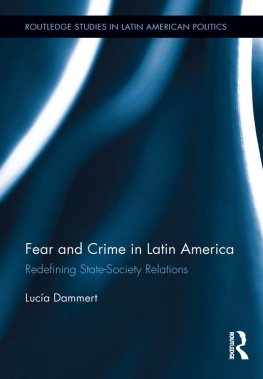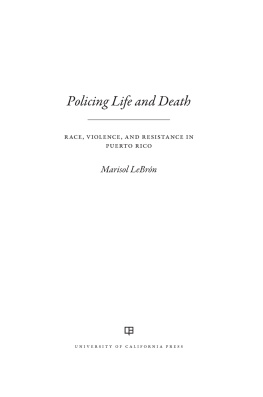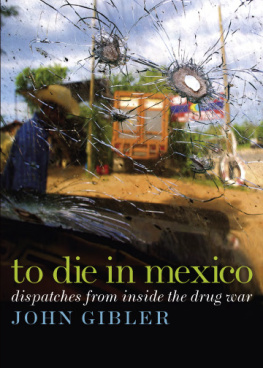
Markus-Michael Mller is an assistant professor of Latin American politics at the Freie Universitt Berlin. His work has focused on transnational security governance, postcolonial state formation, and the urbanization of neoliberalism. He is the author of Public Security in the Negotiated State: Policing in Latin America and Beyond (2012).
THE
PUNITIVE
CITY
PRIVATIZED POLICING AND PROTECTION
IN NEOLIBERAL MEXICO
MARKUS-MICHAEL MLLER

Zed Books
LONDON
The Punitive City: Privatized Policing and Protection in Neoliberal Mexico was first published in 2016 by Zed Books Ltd, The Foundry, 17 Oval Way, London SE11 5RR, UK.
www.zedbooks.net
Copyright Markus-Michael Mller 2016
The right of Markus-Michael Mller to be identified as the author of this work has been asserted by him in accordance with the Copyright, Designs and Patents Act, 1988.
Typeset in Sabon by seagulls.net
Index:
Cover design by roguefour.co.uk
All rights reserved. No part of this publication may be reproduced, stored in a retrieval system or transmitted in any form or by any means, electronic, mechanical, photocopying or otherwise, without the prior permission of Zed Books Ltd.
A catalogue record for this book is available from the British Library.
ISBN 978-1-78360-697-9 hb
ISBN 978-1-78360-696-2 pb
ISBN 978-1-78360-698-6 pdf
ISBN 978-1-78360-699-3 epub
ISBN 978-1-78360-700-6 mobi
CONTENTS

ACKNOWLEDGEMENTS

This book is the result of a more than ten-year journey that started with my first trip to Mexico City in the spring of 2006. The journey began with a dissertation project that was written within the context of a larger research project on public security and human rights in so-called developing democracies. The journey has ended, for the time being, with this book, which addresses what can be described as the dark side of these developments. This book would not have been possible without the support, encouragement, criticism and assistance of many people, including friends and family.
My first thanks are to Marianne Braig who, for nearly twenty years, has been a mentor in the most positive meaning of the word. She has been a constant source of intellectual inspiration and support. It would be impossible to list all the people who, over the course of the last ten years, commented, supported and critically discussed my work on urban security in Mexico City with me. Among those whose comments have helped and inspired me are Carlos Alba Vega, Enrique Desmond Arias, Elena Azaola, Anne Becker, Jos Carlos Aguiar, Paul E. Amar, Bernd Belina, Benedicte Bull, Didier Fassin, Daniel M. Goldstein, Lirio Gutierrez Rivera, Paul Hathazy, Tina Hilgers, Jana Hnke, Kees Koonings, Reinhard Kreissl, Dirk Kruijt, Claudio Lomnitz, Gnther Maihold, Matthias Middell, Wil Pansters, Pablo Piccato, Shalini Randeria, Michael Riekenberg, Veronica Schild, Stefanie Kron, Stephanie Schtze, Jefrey Rubin, Ruth Stanley, Mark Ungar, Loc Wacquant and Martha Zapata Galindo.
I would also like to thank the academic and administrative staff, past and present, of the ZI Lateinamerika Institut, Freie Universitt Berlin, the Collaborative Research Center (SFB) 700 Governance in Areas of Limited Statehood, Freie Universitt Berlin, as well as my former colleagues at the Center for Area Studies, Universitt Leipzig, for the inspiring and productive work environments that allowed me to develop most of the ideas presented in this book. At the SFB 700, I also want to thank Eric Stollenwerk and Anne Hehn, for their critical support with bureaucratic and administrative issues.
I am also thankful for the research assistance provided by Frank Mller, Peter Finkenbusch, Birte Keller and, particularly, Carmen Altmeyer, who provided me with invaluable assistance in preparing the final manuscript. I am grateful for the excellent research assistance, including conducting interviews with local residents, provided by Nils Brock and Carlos Alberto Zamudio in Mexico City.
The research for this book was made possible by funding provided by the Deutsche Forschungsgemeinschaft (DFG), the German Federal Ministry of Education (BMBF), as well as the initial financial support, in the form of a PhD research grant (NaFG), from the Senate of Berlin.
Several of the chapters that follow draw on material that has been published elsewhere. Parts of draw on material that was presented at the conference Crime, Insecurity, Fear in Mexico, Columbia University, New York, 1314 November 2009 and published as Addressing an Ambivalent Relationship: Policing and the Urban Poor in Mexico City, Journal of Latin American Studies, 44(2) (2012), 319345. The chapter also draws upon a paper presented at the XXXIII International Congress of the Latin American Studies Association, Puerto Rico, 2730 May 2015. I am thankful to the publishers for granting me permission to include this material in this book.
Finally, I want to thank Kika Sroka-Miller, my editor at Zed Books, for her interest in my research and her encouraging professionalism that substantially shaped the final version of this book and made the whole process a very pleasant experience.
Louise Wiuff Moe knows that this book would not have seen the light of day without her loving personal support and sharp intellectual criticism. Engaging with my writing through the lens of her own research on Somalia in many ways helped me to see Mexican realities differently and to strengthen several of the books main arguments. The book was written while she was pregnant with our daughter Mathilde and finalizing the manuscript coincided with Mathildes birth. The book is dedicated to Louise and Mathilde, for all the love, joy and inspiration the two of you bring into my life every single day.
ABBREVIATIONS

CCE | Empresarial Coordination Council (Consejo Coordinador Empresarial) |
CCTV | closed-circuit television |
CDHDF | Human Rights Commission of the Federal District (Comisin de Derechos Humanos del Distrito Federal) |
CESPEDES | Center for Private Sector Studies for Sustainable Development (Centro de Estudios del Sector Privado para el Desarrollo Sustentable) |
FDN | National Democratic Front (Frente Democrtico Nacional) |
FPFVI | Independent Popular Front Francisco Villa (Frente Popular Francisco Villa Independiente) |
INEGI | National Institute of Statistics and Geography (Instituto Nacional de Estadstica, Geografa, e Informticas) |
INACIPE | National Institute for Penal Sciences (Instituto Nacional de Ciencias Penales) |
INSYDE | Institute for Democracy and Security (Instituto para la Seguridad y la Democracia A.C.) |
LED | Extinction of Property Law of the Federal District (Ley de Extincin del Dominio para el Distrito Federal) |
Next page
